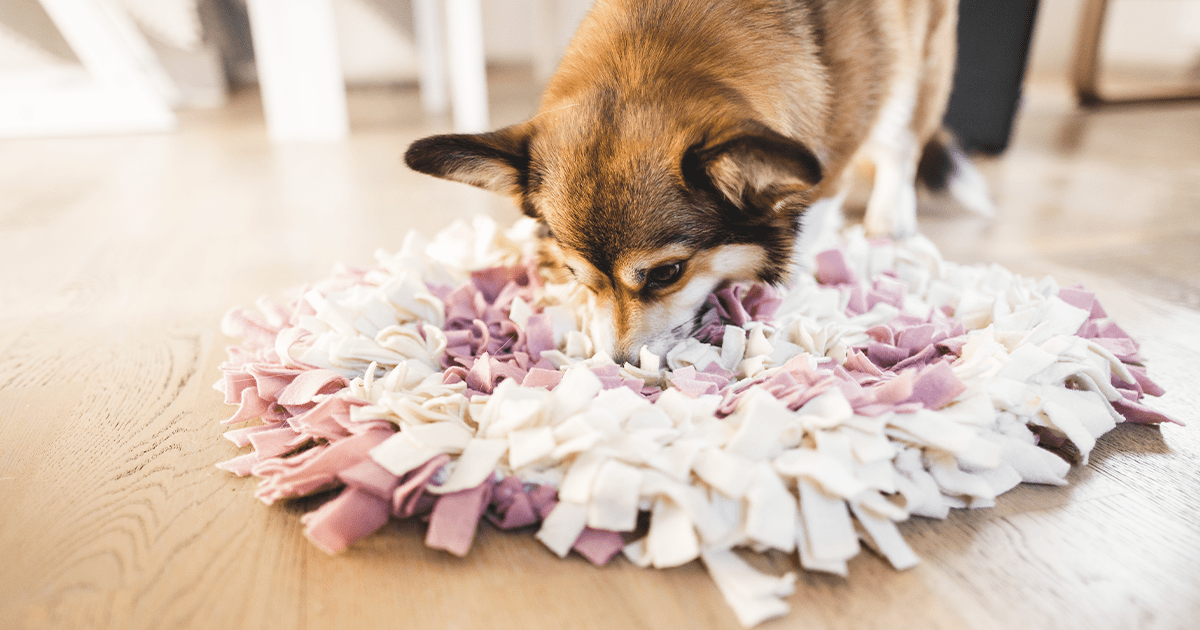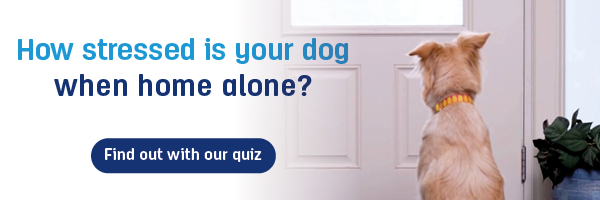It’s no secret that dogs are highly social animals. They thrive on companionship with humans and often feel more confident when we’re around. The downside is that we can't take them everywhere! Leaving our furry friends alone, even for just short periods of time, can often lead to separation anxiety in dogs. Fortunately, help is on hand. We’re here to share our top tips and advice to help your pooch when showing signs of separation anxiety.
A Safe Place To Relax
It’s important that dogs or puppies with separation anxiety have a comfy bed or safe den area where they can relax. This helps them to feel safe and secure even if their human isn’t around. This should be away from the hustle and bustle of your home, allowing a space to escape to if they need some ‘me time’.
 Establish A Routine
Establish A Routine
Another way to help manage the signs of separation anxiety in dogs is through routine. Dogs can often be anxious creatures, but knowing what’s coming up can help them to feel reassured and in a better place to cope with any potential stressful situations. For instance, you should aim to walk your dog at the same time each day, and keep to a strict timetable when it comes to food. The same also applies for rest and playtime. Having a consistent routine is a great way to help dogs feel less nervous when their humans aren’t around.

Teach Your Dog To ‘Settle’
Give your dog something fun to keep them busy. This could be a puzzle feeder or long-lasting treat. These can be effective for teaching dogs and puppies that find being home alone difficult to 'settle', helping them to feel more comfortable on their own.
To do this, leave briefly while your dog is enjoying their treat, then return and reward them for staying calm and settled. Build up to spending time in a different room and steadily build this into their daily routine. By gradually increasing the time and distance of separation, you can eventually reach a point where they stay calm and settled when you go out.
If you see any continued signs that your dog isn’t coping, it likely means you’ve progressed too fast. Simply go back a stage and leave them for a shorter period, or just step away temporarily. Ideally, outside of these training sessions, you should avoid leaving your dog alone for any longer than they’re comfortable with during training. Otherwise this can upset the training process and you may need to backtrack a few steps. 
Use A DIFFUSER FOR DOG ANXIETY
A diffuser for dog anxiety can be a highly useful tool in calming your pup when they start displaying signs of separation anxiety. The ADAPTIL Calm Home Diffuser sends calming messages that have been clinically proven to help dogs stay home alone. For the best results, plug the diffuser into the room where your dog spends most of their time. As well as helping dogs when they’re home alone, ADAPTIL can also be useful for everything from fireworks to dog walks!

Remember, when it comes to receiving the best advice for caring for your dog, it’s always best to seek professional advice from a vet. If your dog is struggling with left being home alone, they’ll be able to provide specific guidance tailored to your furry friend’s unique needs.
Are you interested in finding more tips for helping dogs with separation anxiety? Get in touch or sign up to our newsletter! We share regular guides and the latest information on caring for our four-legged friends. You can also take our online quiz to help you find the most suitable ADAPTIL products to help your dog remain happy and relaxed.
Take our quiz for top tips and advice to help your dog with separation anxiety!

